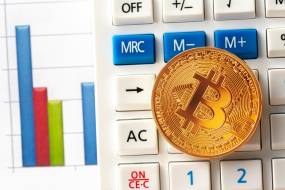
What is ISO 20022?
The financial sector is quickly embracing ISO 20022, a brand-new global standard for financial messaging.
The story surrounding ISO 20022 is centered on the advantages it provides to businesses, consumers, and financial institutions.
Increasing the effectiveness of financial message is one of ISO 20022's main advantages.
The standard gives financial messages a consistent language and structure, which can assist to cut down on errors and speed up transactions.
As a result, financial institutions and their clients may incur less expense while receiving faster and more dependable payments.
Increased interoperability between various financial systems and institutions is another advantage of ISO 20022.
Because to the standard's widespread adoption, it enables smooth interaction and communication between parties regardless of their geographic location or technological prowess.
The consumer experience can be enhanced and new business opportunities may be created as a result.
In addition to these advantages, ISO 20022 also provides improved data capabilities, enabling the inclusion of more comprehensive and structured information in financial messages.
This can aid financial organizations in improving their efforts in risk management and compliance as well as better understanding the demands and preferences of their clients.
In general, the story surrounding ISO 20022 emphasizes improved productivity, interoperability, and data capabilities.
It is anticipated that the standard will become a pillar of the international financial system and have significant ramifications on how payments and financial messages are carried out as more financial institutions and companies implement it.
Impact on crpto?
The crypto sector could be severely impacted by ISO 20022 in a variety of ways.
These are a few possible outcomes:
Interoperability between various financial systems and institutions may be improved thanks to ISO 20022, which offers a standard language and structure for financial messaging.
By facilitating their integration with established financial organizations and processes, cryptocurrencies may become more widely used and accepted.
Better data capabilities: ISO 20022's enhanced data capabilities may contribute to increased transaction transparency and traceability for cryptocurrencies.
Regulators may find it simpler to monitor and enforce compliance as a result, which may lower the likelihood of fraud and other illegal conduct in the sector.
Messaging protocol standardization: The ISO 20022 standardization of messaging protocols may help to lessen mistakes and irregularities in bitcoin transactions.
This may contribute to the bitcoin industry's increased efficiency and dependability, which may lower costs and boost consumer satisfaction.
Payment systems based on ISO 20022 adoption: When more conventional financial institutions implement payment systems based on ISO 20022, it may be simpler for cryptocurrency payment systems to interact with these systems.
As a result, there's a chance that more people may adopt and use cryptocurrencies.
So, even though it's yet unclear how ISO 20022 will affect the cryptocurrency market, it might have a big positive impact.
It could serve to increase the openness and dependability of cryptocurrency transactions by boosting efficiency, interoperability, and data capabilities, possibly increasing their adoption and acceptability by the general public.
Any cryptocurrencies that are used for financial transactions may be impacted by ISO 20022, a global standard for financial messaging.
Yet, depending on their adoption and use cases, some cryptocurrencies may be more impacted than others.
The following digital currencies may be most impacted by ISO 20022:
Bitcoin: Any modifications to international financial communications standards are likely to have an impact on the biggest and most popular cryptocurrency.
However, as Bitcoin transactions are already very standardized and might not need the additional data capabilities provided by the new standard, the impact of ISO 20022 on Bitcoin might be rather small.
Ripple (XRP) is a cryptocurrency that was created primarily for use in remittances and cross-border payments.
As a result, ISO 20022, which strives to improve efficiency and interoperability in financial messaging, may have a substantial impact.
The Ripple Protocol, a messaging technology that Ripple has previously created, may lessen the negative effects of ISO 20022 on cryptocurrencies.
Ethereum: The decentralized applications (dapps) and smart contracts are built on the Ethereum blockchain platform.
Although while Ethereum isn't primarily used for financial transactions, the standard's adoption by additional financial institutions and future integration with Ethereum-based dapps and smart contracts could nevertheless have an impact on the cryptocurrency.
Compliant Coins?
- Quant (QNT)
- Hedera Hashgraph (HBAR)
- Algorand (ALGO)
- IOTA (IOTA)
- XINFIN (XCD)
- Stellar Lumens (XLM)
- Ripple (XRP)
When is it happening?
SWIFT is currently implementing ISO 20022, and it is anticipated that it will be finished in stages over the following few years.
The first phase will last until the end of 2025, when all remaining SWIFT messaging services are expected to be transferred to ISO 20022. The first phase started in November 2022 with the migration of some high-value payment systems to the new standard.
It's important to keep in mind that each financial institution may have its own migration plan and timeframe, so the precise timing and extent of the rollout may differ by location.
SWIFT pushes back the launch of ISO 20022 to 20 March.














